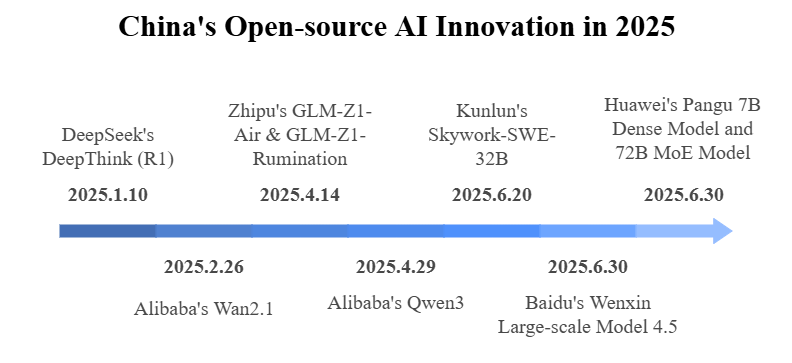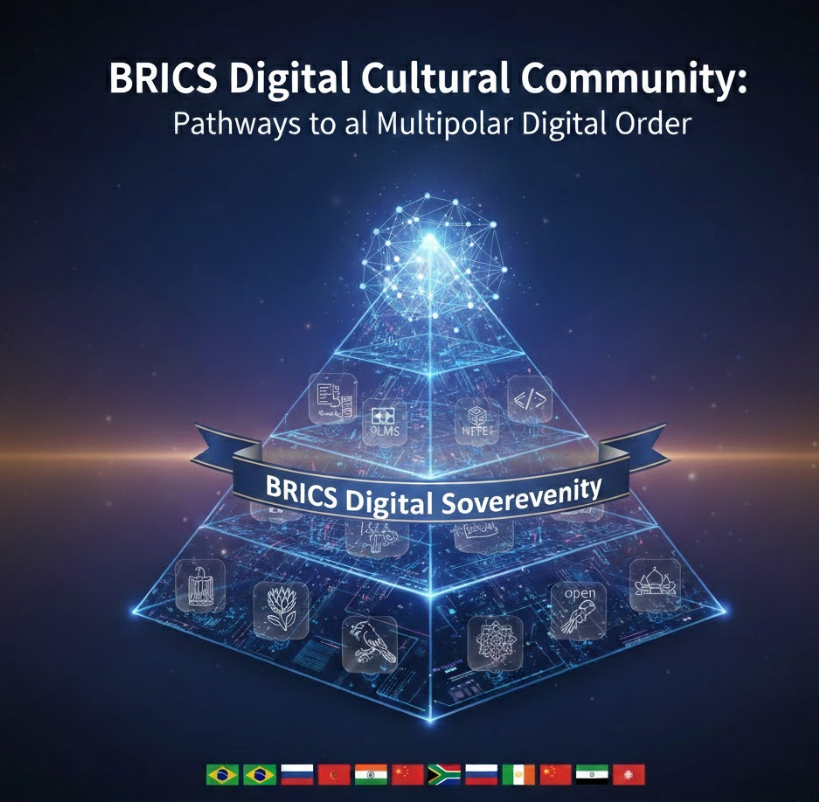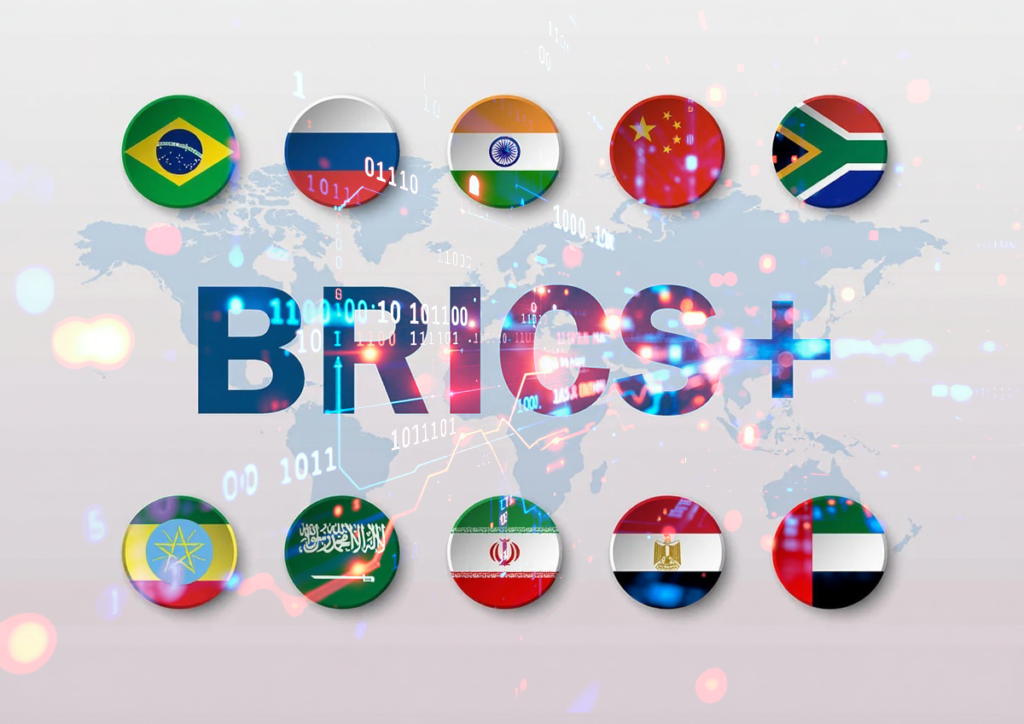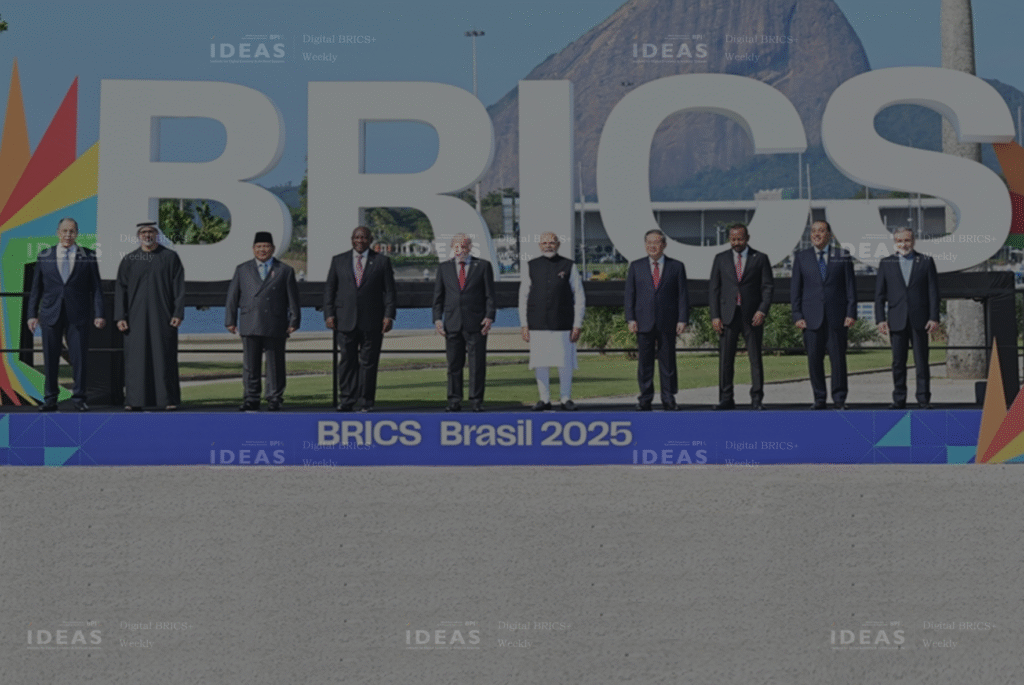Artificial intelligence has become a primary arena for geopolitical strategy, with different global powers championing distinct visions for the future of technology. In an environment of increasing technological restrictions, China has embarked on a strategic initiative, pivoting toward open-source AI as a cornerstone of its national development.
This is a forward-looking policy designed to foster innovation and build a new network of technological cooperation, with a focus on the expanded BRICS bloc and the wider Global South. As Chinese Premier Li Qiang has stated, AI should not become “an exclusive game for a few countries and companies,” positioning Beijing’s open-source push as a move toward a more accessible and equitable technological future. By offering powerful AI tools and fostering partnerships based on mutual respect, China is cultivating a new paradigm for technological alignment and aiming to architect a collaborative, parallel ecosystem with its open-source models as the foundation.
China’s embrace of open-source AI is a multifaceted strategy, serving to build domestic resilience while fostering international cooperation and shared development. Faced with external limitations on access to state-of-the-art hardware, open-source has become an indispensable tool for the Chinese AI industry. It provides a pathway for continued innovation by shifting focus from raw computational power to software-level optimization and architectural efficiency, where Chinese firms have demonstrated remarkable ingenuity.
Beyond its domestic utility, China strategically employs open-source AI to foster international collaboration. The goal is to make advanced Chinese technology a pillar of development in emerging economies, building an interconnected and mutually beneficial ecosystem. This technological diplomacy is framed as inclusive and collaborative, a narrative that appeals to nations valuing their sovereignty. As more countries build their AI applications on Chinese open-source models, they become more deeply integrated into a global network of innovation.
WAIC 2025: A Showcase of Global South Collaboration
The recent World Artificial Intelligence Conference (WAIC) in Shanghai served as a powerful demonstration of this collaborative vision in action. The event gathered over 800 companies from more than 70 countries, highlighting China’s role as a global hub for AI innovation and governance dialogue. A key event was the “Win-Win BRICS” forum, co-organized by our institute, IDEAS. This forum provided a platform to advance AI cooperation among BRICS countries, focusing on open-source ecosystems, industrial applications, and shared governance frameworks. One of the forum’s landmark achievements was the launch of the new academic journal, AI & Innovation (AI²). A joint publication by IDEAS, Tsinghua University Press, Xiamen University, and Wiley, the journal aims to become a premier platform for interdisciplinary AI research, with a special focus on amplifying perspectives from the Global South.
The forum also featured an insightful panel on Embodied AI, where experts discussed the technology’s potential to transform sectors like manufacturing, healthcare, and education. Panelists emphasized that for the Global South, embodied AI is a critical tool for achieving digital sovereignty and ensuring that technological advancement supports national development goals and workforce inclusion. These discussions, and the commitment to a permanent “Global South” track at future WAIC events, underscore the growing influence of emerging economies in shaping the future of AI.
China’s Partnership with BRICS+ Nations
| Partner | Nature of Engagement | China’s Objective | Partner’s Objective |
|---|---|---|---|
| Russia | Deep Strategic Partnership | Enhance technological sovereignty & foster a multipolar world order. | Access China’s tech ecosystem & jointly develop advanced technologies. |
| Brazil | Collaborative AI Governance | Strengthen South-South cooperation & share digital governance experience. | Advance leadership in the Global South & enhance digital autonomy. |
| South Africa | Digital Infrastructure Development | Build a digital gateway for Africa & promote shared tech standards. | Accelerate digital transformation & bridge the digital divide. |
| India | Mutual Growth Partnership | Foster shared prosperity & integrated supply chains. | Enhance ‘Make in India’ goals & accelerate technological growth. |
| UAE | Strategic Tech & Finance Hub | Establish a Middle East tech hub & showcase advanced AI. | Lead in the global AI race & diversify the national economy. |
| Iran | Alliance for Tech Sovereignty | Foster a regional tech partner & build a resilient digital corridor. | Achieve technological self-reliance & modernize key industries. |
| Egypt | National AI Ecosystem Building | Create a North African AI hub & share successful governance models. | Modernize public services & build national AI capacity. |
| Ethiopia | AI for National Development | Showcase “AI for Good” projects & support regional development. | Boost food security & build foundational tech infrastructure. |
| Indonesia | Targeted Sectoral Partnerships | Expand tech & educational ties in Southeast Asia. | Develop a domestic talent pool & boost key economic sectors. |
The spirit of cooperation seen at WAIC is reflected in China’s deepening bilateral partnerships within the BRICS+ framework. The China-BRICS AI Development and Cooperation Center in Shanghai serves as an institutional anchor for these efforts, facilitating joint research and training. This framework supports a cooperative structure with China often taking a leading role. The partnership with Russia is strategically aligned, extending to deep scientific collaboration in areas like healthcare AI and joint academic programs. With Brazil and South Africa, partnerships are centered on development and technology transfer, applying AI to key economic sectors and national priorities like digitalizing industry and bridging the digital divide. The relationship with India remains complex, with areas of competition, but channels for pragmatic engagement in sectors like electronics manufacturing are being explored, contingent on technology transfer.
This engagement extends robustly to the new members of the alliance. In the Middle East, China has signed comprehensive strategic partnerships covering the digital economy and AI with both Saudi Arabia and the UAE. These collaborations involve large-scale investments in smart cities, joint ventures in intelligent manufacturing, and partnerships between leading tech firms to advance machine learning and big data solutions. With Iran, cooperation is deepening under a 25-year strategic agreement, focusing on AI, industrial intelligence, and human resource training. In Africa, China’s partnerships with Egypt and Ethiopia are tailored to national development goals. This includes the “Digital Egypt Builders” program and support for Ethiopia’s landmark initiative to embed AI into its agricultural systems for enhanced food security. China has also pledged direct support for the Ethiopian Artificial Intelligence Institute to boost local capacity in research and development.
A central pillar of China’s strategy is to actively contribute to the global rules that will govern AI. Within BRICS, China is promoting a model of data governance that emphasizes digital sovereignty, national development, and the public interest. This approach, which respects the right of each nation to regulate within its jurisdiction, has gained significant traction.
China’s ultimate ambition is to help set global technical standards in a collaborative manner. Through a “state-guided, enterprise-led” approach, Beijing works with its national tech champions to establish domestic AI standards and then promotes them internationally as a basis for cooperation. By embedding these standards into the AI systems adopted by its partners, China aims to help create a vast, interoperable technology bloc that operates on shared principles of openness and mutual benefit.
A New Era of Global Tech Cooperation
For BRICS+ nations, China’s open-source AI strategy presents a significant opportunity. It offers a tangible pathway to accelerate digital transformation by dramatically lowering the barrier to entry into the AI revolution. This enables the creation of solutions tailored to local languages, cultures, and specific regional challenges, fostering true digital sovereignty.
The global conversation on AI safety and ethics is a shared responsibility. Collaborative frameworks like those being pioneered within BRICS, and showcased at forums like WAIC, provide a vital platform for developing countries to contribute their perspectives. Through such cooperation, the international community can shape a future where AI is safe, reliable, and beneficial for all humanity. China’s open-source blueprint is a sophisticated and forward-thinking response to global challenges, rapidly shaping a more multipolar and inclusive AI world.






No comment yet, add your voice below!